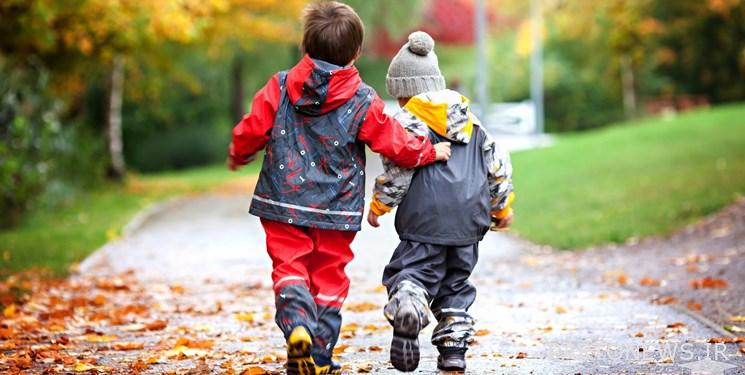Proper management of children’s friendships / What should I do with my child’s bad friend?

Family group: Making friends is one of the most important parts of every person’s communication and social life. Every child at different ages chooses a number of friends and communicates with them. Sometimes this friendship becomes one of the concerns of parents and families seriously because sometimes children at different ages do not find good friends for themselves and this has a great impact on their choice in adulthood.
The impact of a friend is sometimes greater than that of a family. Now you see if your child has good friends?
Some families worry about what to do so that their child does not imitate the bad deeds of their friends or their words do not negatively affect their child.
Imitation is one of the most important stages in children’s development, language learning, learning social behaviors and children’s development. So you can not eliminate the act of imitation.
The first thing you need to know in this regard is that from the age of four, making friends is important for children, and from the age of seven, a friend will be more important than parents in children’s lives. So a friend will have a significant impact on your child’s life.
As a parent, you need to accept that your child cares about his or her friends, imitates them, and cares about what his or her friends say.
But the question is, what should you do if your child has been abused or bullied? Here are some tips to help you get started:
1. Do not fight or punish your child for being friends with a child
Try to indirectly reduce your child’s relationship with this abusive or troubled friend, but create the conditions for him to become friends and intimate with other children, not to fight or punish him so that he is more attracted to that child in question.
2. Ignore some behaviors
If your child learns a bad behavior such as screaming, nodding or other harmless things, explain it only once and then ignore it completely.
Instead, focus on the good work of good children and encourage them. So instead of fighting over bad behaviors, reinforce his positive actions.
3. Do not advise
If another child upsets your child with his words, do not advise him to say, for example, “Leave him alone, he is jealous, his words do not matter.” Your child’s feelings are very important. Try to listen to him and find a solution together to get rid of this child.
These problems also occur for older children, especially in adolescence, but families should be aware and communicate well with their adolescents. The better and stronger the relationship between parents and children in adolescence, the effectiveness of the advice. There will be more compassionate parents.
Some parents mistakenly do things in a hurry and quickly tend to, for example, their child cut off communication with a friend, this is a wrong way that gives the opposite result. From an expert point of view, such behavior does not have a positive result. It is wise to move forward with full awareness, to prepare the ground for this disconnection, to go step by step, and to consider all the risks.
The most important solution in this regard is to get help from another person, a person who has a great impact on your child, bring him to your child to explain the dangers of his relationship with a bad person and inform him. This other person must be someone who has the influence of words on your child so that he does not become a guard and defensive.

* Communicate well with your child
At home, you should provide a platform for your child to have a good time with you and enjoy being with you and other family members. When children feel safe and well at home, they are less likely to seek out well-being outside the home, and communication outside the home is less likely.
You need to be in control of your child’s out-of-the-way relationships and friendships with other family members and friends. Are connected and interact.
You can even make family connections with your child’s friends, invite them in or visit their family members, and if your child likes them, socialize with them and get to know them better, unless there is a friend who Has a problem or problem and is reluctant to communicate, or your child recognizes that he or she cannot have a family relationship with this friend. In such cases, you need to inform the children about the consequences of this relationship and its consequences.
End of message /

